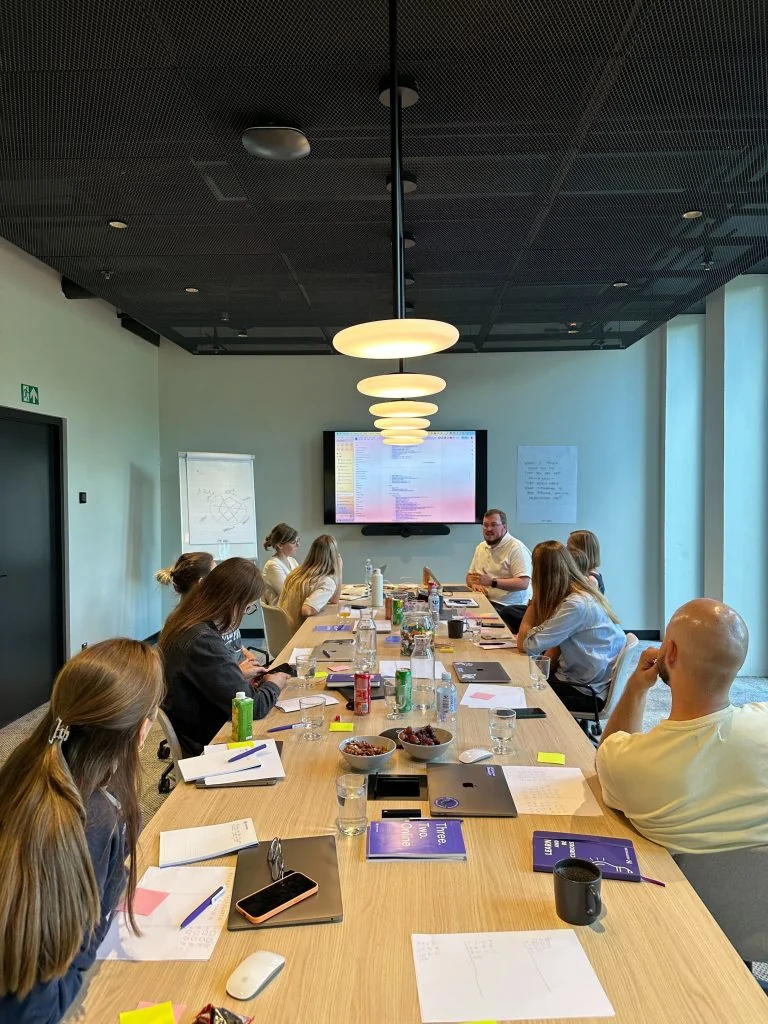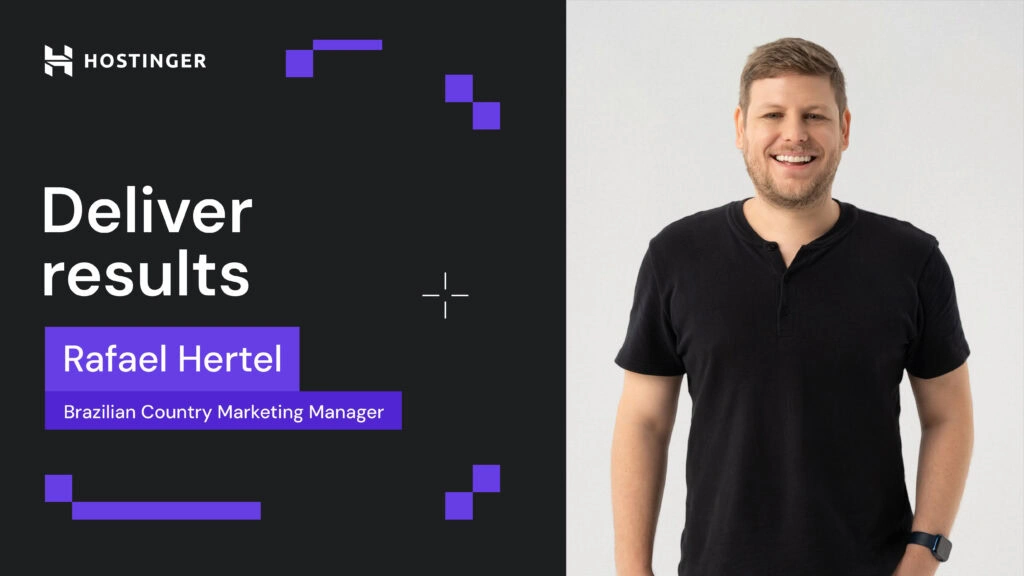Master Your Minutes: Discover the Best Tools and Practices for Effective Time Management

Being productive at work, taking care of yourself, finding time for your family and friends, and following the news can be overwhelming. To thrive in this fast-paced world, you need an effective time management strategy.
Eglė Abišalienė, our Head of Learning and Development, and CEO Daugirdas Jankus organized the Time Management & Effectiveness training and shared their tips and tricks on making every minute of your time count.
Why Does Time Management Matter?
Time management refers to planning your time before starting to do a task. This way, you can control how much you spend on specific tasks to work more efficiently.
Effective time management tools and practices can provide a wide range of benefits in both personal and professional life:
- Improve performance. Time management helps you focus on important tasks by avoiding time-consuming distractions. As a result, you can produce better-quality work without worrying about meeting the deadline.
- Reduce stress and boost confidence. Prioritizing and giving yourself enough time to accomplish tasks reduces stress. Consistently finishing daily to-do lists is a huge motivator that can drive people to further improve various skills.
- Become more trustworthy. Managing your time properly makes you a more reliable and trustworthy employee, helping you achieve your career goals.
Know What Matters Most
Effective time management comes easier to some people than others, but everyone can develop habits to improve it. However, doing so requires certain knowledge and the right tools.
We have recently had a workshop on Time Management & Effectiveness. Eglė Abišalienė, Head of Learning and Development, shared how to consistently accomplish your most important tasks amidst urgencies and interruptions while keeping your energy levels high.
Prioritize Tasks and Communicate Clearly
Before prioritizing tasks, identify your short and long-term goals related to work and personal life. This will bring a sense of direction, helping you decide where to shift your attention.
“As Stephen Covey said: “Schedule the big rocks, don’t sort the gravel.” Use the Eisenhower matrix to prioritize the tasks, reflect on how much time daily activities take, and look at what is stealing your time. Of course, you will need much courage to tell others that you won’t be able to do certain tasks,” explained Eglė.
Remove Distractions
According to Eglė, it is essential to eliminate distractions and declutter your environment, including your desk, email, and desktop. The cleaner the environment and thoughts, the more room for new ideas and tasks.
“Multitasking brings distractions, mistakes, and stress. That’s why you should take one step at a time – schedule time to check communication channels, use categories and rules, and remove all notifications, pop-up signs, and sounds. Try shutting the phone to maximize time spent on a substantial project. You don’t always have to be connected; you can schedule a part of the day to get back to people, reply to emails, and return calls,” emphasized she.
Maintain Discipline
Once you have the rules to follow, you’ll spend less time deciding what to work on or procrastinating and do the important work instead. To maintain this discipline, Eglė shared a few methods worth trying.
“David Allen, in his book “Getting Things Done” talks about the 2-minute rule, which means that you either tackle a new task at the moment or schedule it for later. However, context is very important when deciding whether to apply the two-minute rule. Some people find the Pomodoro technique more helpful – 25 minutes of concentration, 5 minutes break. Every 4 Pomodoros – you take a longer break. And, of course, the well-known Eat the Frog technique, which advises doing the hardest or most unpleasant tasks first,” shared Eglė Abišalienė.
Find The Right Methods
Daugirdas Jankus, CEO at Hostinger, shared his experience and gave useful tips and tricks on being more effective with time management:
Getting to Know Yourself
While all tools and methods are good, you need to know your strengths and weaknesses to find the ones that work for you.
“I use the Zone of Genius questionnaire – this allows me to understand more context, self-assess what I am doing fine or wrong, and which tasks I don’t like doing. I also know exactly what hours I am most productive during the day, and I use those to make the most important decisions,” says Daugirdas.
He also shares that one of the best sources for self-development is Principles by Ray Dalio, as it guides you to keep discipline and honesty with yourself and others.
Batching tasks
To cope with a large number of tasks, Daugirdas uses batching. He allocates one or more days for certain types of tasks, as it helps keep concentration and do more in less time.
“I get a lot of new information throughout the day; I move it to other platforms, not to deviate from the work I am doing at the time, but to be able to return to it later. For our company, having a full Learning day helps recharge, improve current skills, and learn new ones. I highly recommend it to others,” highlighted Daugirdas Jankus.
He shared that several techniques help him cope with a high volume of information daily: archiving old tabs daily, keeping the browser tidy, and using a reader app that helps to collect and batch readings, making it easy to return to them.
Planning Is the Key
The worst way to jump into a day is without a clear idea of what you need to get done.
While unexpected events will come into the day, you’ll still be more productive with a plan. Daugirdas uses planning tools for his daily professional and personal life. “I start my day by checking all the tasks, as I mark almost everything from my meetings to long-term goals or even present ideas for my mother. It helps me to see the bigger picture and prioritize those tasks. Every Friday, I plan the next week and allocate time for the most important tasks,” shares Daugirdas.
Small Steps – Big Results
As we reflect on task prioritization techniques, time management tips, and the art of saying no, it’s important to remember that there’s no one-size-fits-all solution. Tailoring these tips to fit your lifestyle and goals is essential.
Daugirdas and Eglė agreed that incorporating at least one or two time management methods and tools into the routine can define how you conquer tasks, as small changes can lead to big results.
Suggested Resources:
Making Your Roles Extraordinary
Indistractable by Nir Eyal’s
Kory Kogon on “Extraordinary productivity
David Allen on “Getting things done
Sheena Iyengar on making choosing easier
Maker’s schedule, Manager’s schedule
Time management won’t save you
Proven Time Management Techniques and Tools





